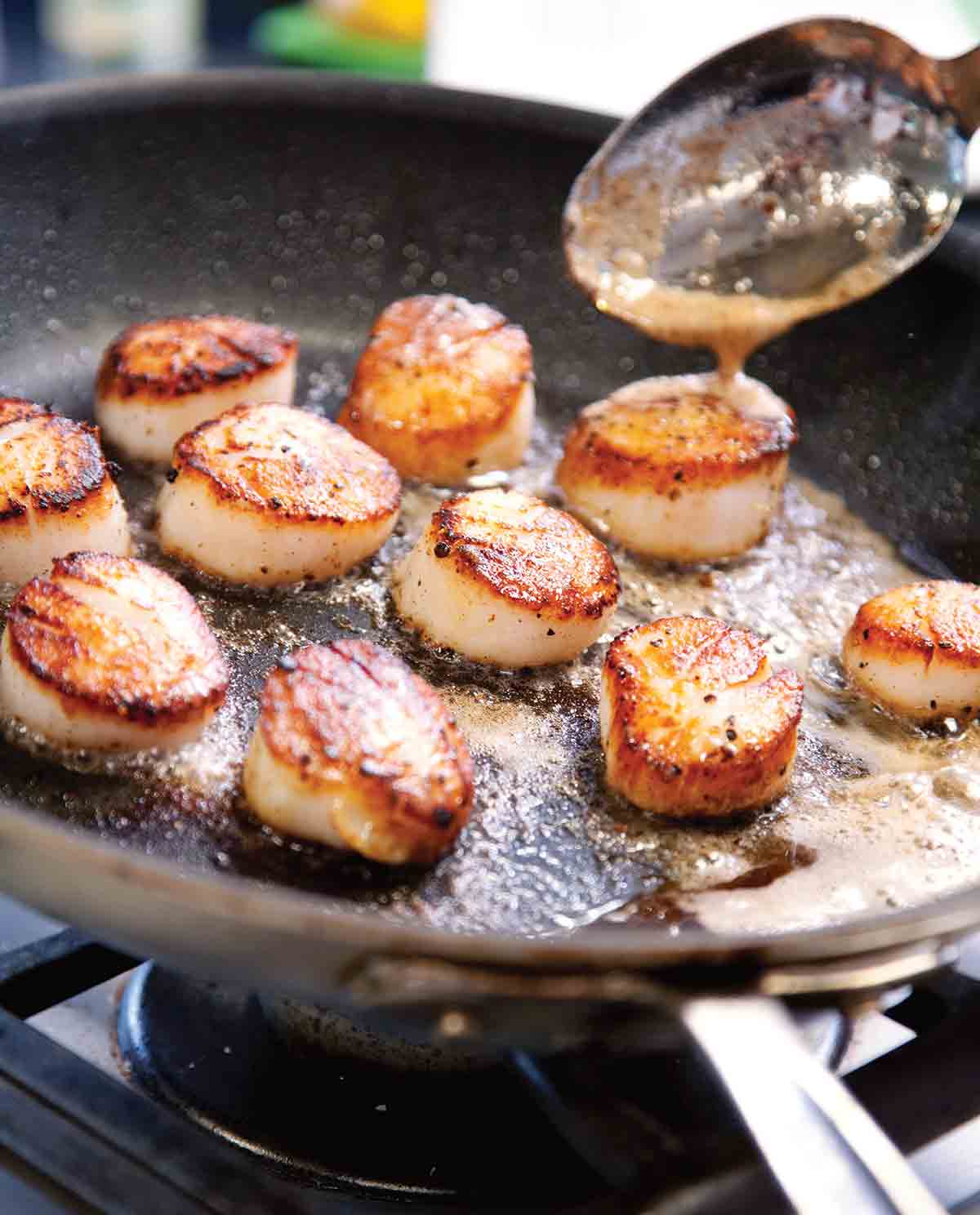
Look no further for how to make perfectly seared scallops that turn out perfectly golden brown on the surface, ever so slightly wobbly on the inside, and sweetly supple through and through.

Why Our Testers Loved This
Our testers loved these easy seared scallops so much that they were scrapping dinner reservations just to stay home and enjoy them. Yes, they’re that good. They loved that they were easy to make, and the finished scallops were “perfectly cooked, with a nice, crisp crust.”
Rita R. said it best. “These scallops are easy and delicious. What more can one ask from a simple Sunday dinner? This was my first time making seafood from beginning to end, and I have to say, it’s definitely a recipe I’ll make again.”
What You’ll Need to Make This
- Scallops–Use fresh sea scallops for this recipe, and pat them completely dry before searing to get a golden crust. Soggy scallops will steam not sear.
- Oil–Use a neutral-flavored oil with a high smoke point. You’ll be using the oil to sear the scallops initially before basting them in butter, so you don’t want the oil to smoke and turn bitter while the scallops are searing. Canola, vegetable, mild olive oil, refined sunflower, or safflower oil are all good choices.
How to Cook Scallops on the Stove
- Dry the scallops. Use a dish towel or paper towel to dry the scallops thoroughly. Season with salt and pepper.
- Heat the oil in a skillet until very hot. Add the scallops and sear, without touching them, until golden brown on the bottom.
- Reduce the heat and flip the scallops. Toss in the butter and cook, basting with the butter, until the scallops are just cooked through.
Common Questions
A cast-iron skillet. No doubt. The sturdy metal not only retains heat well, but it also heats evenly.
That results in the beautiful golden brown sear that we so covet on our scallops, pan-seared chicken, pork chops, steaks, and more. You’ll often see recipes call for nonstick skillets to sear food to avoid sticking. But they’re made of flimsier metals, which means they conduct heat less efficiently, ergo a less lovely sear.
The secret to preventing scallops (or any protein) from sticking is patience. Rather than nudge and poke them, worrying about them sticking, trust that when they’re properly seared, they’ll release from the skillet. If they don’t, then it’s not ready yet.
Try again in a few moments. When it’s had enough time, it’ll let go. Trust me.
Sea scallops are larger and have a meatier texture than bay scallops, which tend to be smaller, sweeter, and more tender. Sea scallops are ideal for grilling or pan-searing. Save the bay scallops for adding to easy pasta dishes, like this simple spaghetti with scallops.
Lemon-brown butter variation
To make a lemon-brown butter version of this recipe, cook the scallops as directed but serve with this sauce on the side: Cook 2 tablespoons of unsalted butter in a small saucepan over medium heat, tilting the saucepan constantly, until the butter turns golden brown and has a nutty aroma, 3 to 4 minutes. Add 1 minced small shallot and cook until fragrant, about 30 seconds. Remove the pan from the heat and stir in 2 teaspoons minced flat-leaf parsley leaves, 1/4 teaspoon minced thyme leaves, and 1 teaspoon fresh lemon juice. Season with salt and pepper to taste.
Helpful Tips
- Use tongs or a thin metal spatula to flip the scallops.
- This recipe is suitable for gluten-free diets.
Write a Review
If you make this recipe, or any dish on LC, consider leaving a review, a star rating, and your best photo in the comments below. I love hearing from you.–David
I’d never had scallops until recently and I loved them! Just want to thank you for this recipe as well as tips for choosing scallops!!! Very helpful.
cynthia
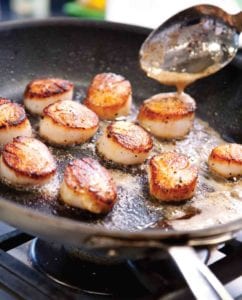
Pan Seared Scallops
Ingredients
- 12 ounces fresh (not frozen) sea scallops
- Salt and freshly ground black pepper, to taste
- 1 tablespoon mild olive or vegetable oil
- 1 tablespoon (1/2 oz) unsalted butter or ghee
- Lemon wedges, for serving
Instructions
- Place the scallops on a large plate or rimmed baking sheet lined with a clean dish towel or several paper towels. Place another clean dish towel or stack of paper towels on top of the scallops and gently press to blot any liquid. Let the scallops rest at room temperature for 10 minutes so the towels absorb any excess moisture.
- Just before cooking, season the scallops with salt and pepper. Heat the oil in a large cast-iron skillet over medium-high heat until hot and almost but not quite smoking.
- Add the scallops to the skillet in a single layer, preferably around the perimeter of the skillet and without crowding them. Cook, without touching the scallops, until they're magnificently golden brown on the bottom, 1 1/2 to 2 minutes.
- Reduce the heat to medium and, using tongs, flip the scallops. (If the scallops stick to the skillet, just let them be still for another moment; they're just not ready to be turned yet. When they're ready, they'll let go.)
☞ TESTER TIP: For the love of all things good, don't use a plastic spatula to flip sea scallops.. Tongs are best but a super skinny metal spatula—you know, a bendy flexible spatula—also works quite well.
- Add the butter to the skillet and use a large spoon to baste the scallops with melted butter as you continue to cook the scallops until the sides and centers are opaque, 60 to 90 seconds more, depending on the size. Use tongs to transfer the scallops to plates or platters as soon as each is done.
- Serve immediately with the lemon wedges.
Video
Notes
- Lemon brown butter variation–Cook the scallops as directed but serve with this sauce on the side: Cook 2 tablespoons unsalted butter in a small saucepan over medium heat, tilting the saucepan constantly, until the butter turns golden brown and has a nutty aroma, 3 to 4 minutes. Add 1 minced small shallot and cook until fragrant, about 30 seconds. Remove the pan from the heat and stir in 2 teaspoons minced flat-leaf parsley leaves, 1/4 teaspoon minced thyme leaves, and 1 teaspoon fresh lemon juice. Season with salt and pepper to taste.
- Dietary–This recipe is suitable for gluten-free diets.
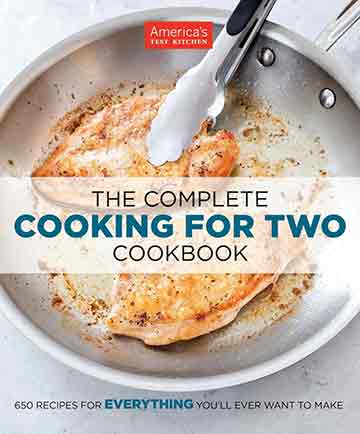
Nutrition
Nutrition information is automatically calculated, so should only be used as an approximation.
Recipe Testers’ Reviews
Loved, loved, loved this scallop recipe—so much so that I wanted more after eating them for dinner. I woke up the next day thinking about them and decided that they’d be dinner that next night, too. We even scrapped plans to go out to dinner in order to eat these again. And you know how sometimes when you have something again, it doesn’t live up to what you experienced the first time? Didn’t happen here.
I should have prefaced this by saying that I like scallops that are allowed to shine on their own. These do just that. I also believe in using a cast-iron skillet to sear mine. I just couldn’t use a non-stick skillet.
The technique of adding the butter and basting the scallops as you cook them is fabulous. No burned or blackened butter. No over-done scallops. Just succulence.
And the butter that’s left in the skillet? Pour it over the scallops. We dipped them in that butter. We also stirred it into a marvelous green rice that I had made to accompany it. Oh, so delicious.
While I’m waxing poetic, I’m going to mention that these sea scallops are so very quick and easy to make. Do you want something really good that will cook in no more than a few minutes? This is it. You can’t heat up prepared food, whether fresh or frozen, this fast. You can’t get take-out or delivery this fast.
I’ll also mention that even though previously-frozen scallops aren’t ideal, you can definitely get them to sear. (Scallops that aren’t previously frozen can be extremely difficult to find.) I decided a while ago not to let that stop me. I defrost scallops with paper towels under them as well as over them. I do need to change the paper towels a few times till they are defrosted and “dry.”)
Once dry, they can achieve that beautiful sear I enjoy, even when fresh aren’t available. Wouldn’t want to be scallop-deprived.
These scallops are easy and delicious. What more can one ask from a simple Sunday dinner? This was my first time making seafood from beginning to end, and I have to say, it’s definitely a recipe I’ll make again.
I used a cast-iron skillet to sear the scallops, and I had no problem with the butter burning. The sauce became nicely brown, and the timing worked out perfectly.
And even with the absence of lemon wedges that my mom forgot to buy, the scallops were still amazing. For the rest of the meal, I prepared a fresh green garden salad with bacon, and I served the scallops along with their buttery sauce on top.
If you follow the instructions in this recipe, you’ll get perfectly-cooked scallops with a nice, crisp crust. Butter-basting is a technique used by restaurants that evenly sears the scallop while imparting flavor. The technique isn’t a new one, but it works well, and adding the butter in the second half of cooking prevents the butter from burning.
Be sure to follow the advice in the recipe and use only “dry” scallops. Also, make sure they’re completely dry before searing them.
Also, make sure your pan and your oil are very hot. I agree that the oil shouldn’t be smoking hot, but rather good and hot, which is indicated by the oil shimmering in the pan.
I didn’t want to take a chance with a nonstick pan, so I used a cast-iron pan. I knew this would give the best possible crust while allowing the center to cook to the perfect degree of doneness. I turned down the heat when I added the butter to ensure that the butter would brown rather than burn. I made the variation with the lemon browned butter, which is a classic combination with the scallops.
These seared scallops were sweet, delicious, and simple.
My butter got very, very brown. Next time, I’d probably take the pan off the heat after flipping the scallops and just baste them and finish cooking off the heat.
I transferred them to a plate and squeezed some lemon over them. The scallops were nice and brown on the outside and tender and juicy on the inside.
These were fabulous—nicely browned and perfectly done. I followed the instructions as written using an All-Clad nonstick skillet, but only turning the heat to medium because my stove and skillet both get really hot.
I cooked the sea scallops for 90 seconds per side and was pleasantly surprised that they were done and opaque in the center. The butter baste helped the browning and gave the scallops quite a nice flavor.
Personally, I’m not fond of sea scallops, but my other half is, and as a treat, I made this for her. As a result, I’m a convert.
This recipe was a home run. This is truly a recreation of what’s served in fine restaurants, and, if you’re using gas, it works well for adapting to the lower BTU temps of a home stove. My stove is electric and can achieve much higher temps.
There’s a difference in the types of scallops mentioned, and the quality is very noticeable. I found wild scallops were superior to the ones at the local fishmonger, so I opted for them. They were all natural, very pink, and also a nice size. It’s very important that there is very little moisture in them, or they’ll steam before they sear. A good gentle squeeze between paper towels will do it.
The timing depends on the size of the scallops because it took more than double the noted time for the scallops I had. In addition, especially if you’re using a cast-iron skillet, remove it from the heat for a minute before adding the butter, then return it to the heat so the butter doesn’t burn.
Some high-quality scallops and just a couple of minutes produced a really delicious meal for the sea scallop lover in my family.
I used my cast-iron enameled skillet and found that when I went to turn the scallops, the crust had stuck to the pan on most of them. I suppose it meant that they were not quite ready yet. Those that kept their crust had a beautiful color.
I turned down the heat as I basted them with butter and had to watch carefully as the heat quickly browned the butter. They were perfectly done when I served them.
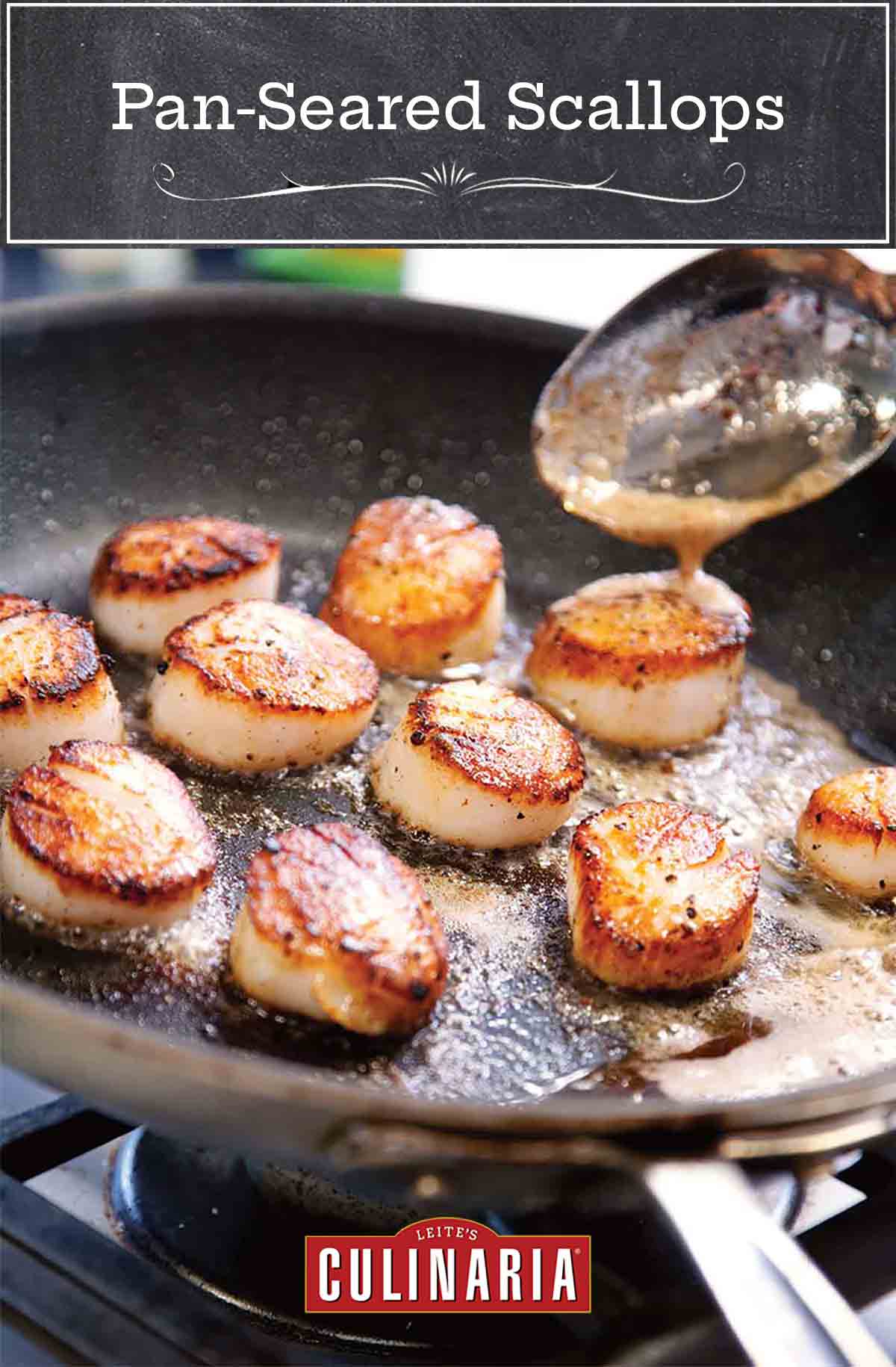
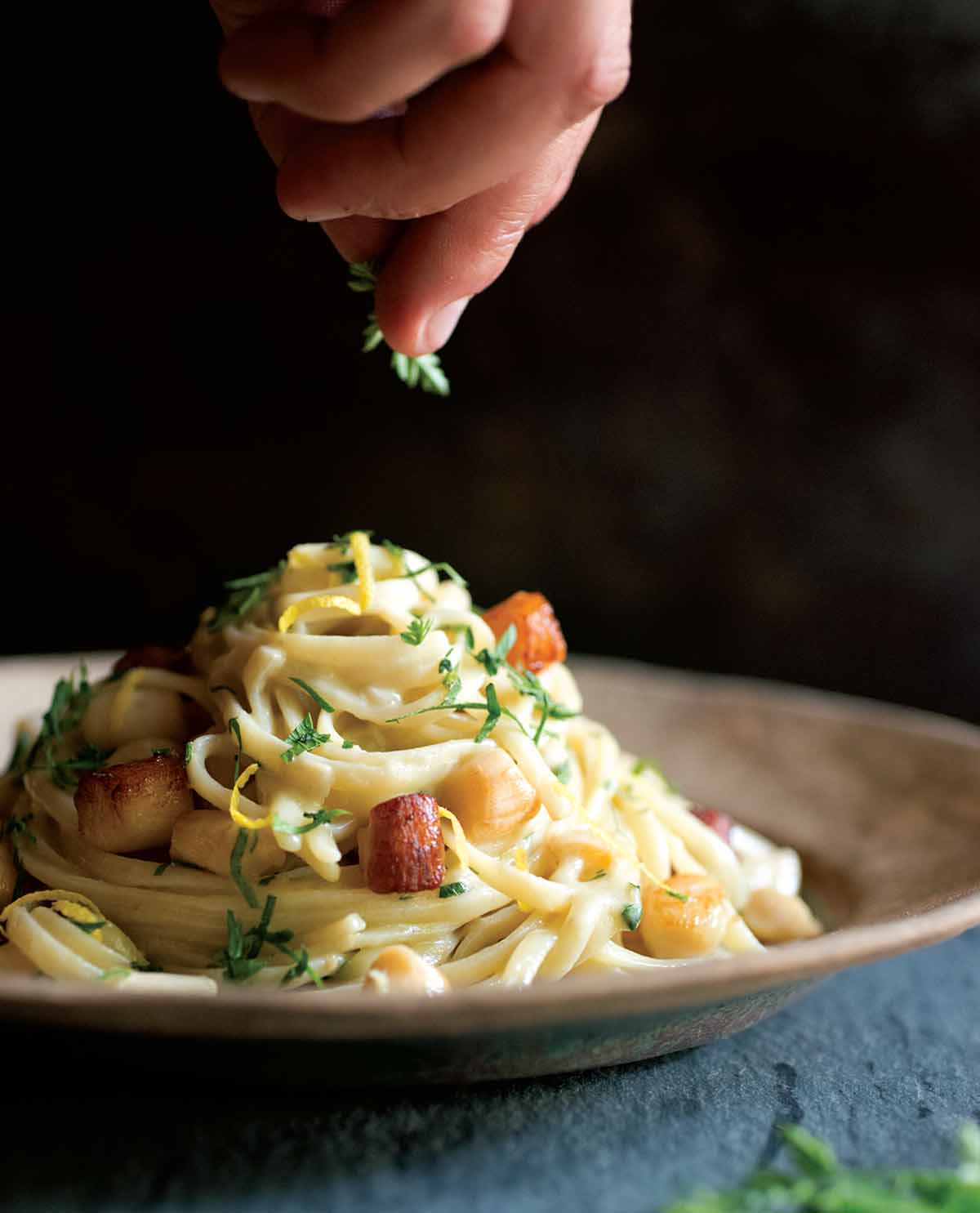
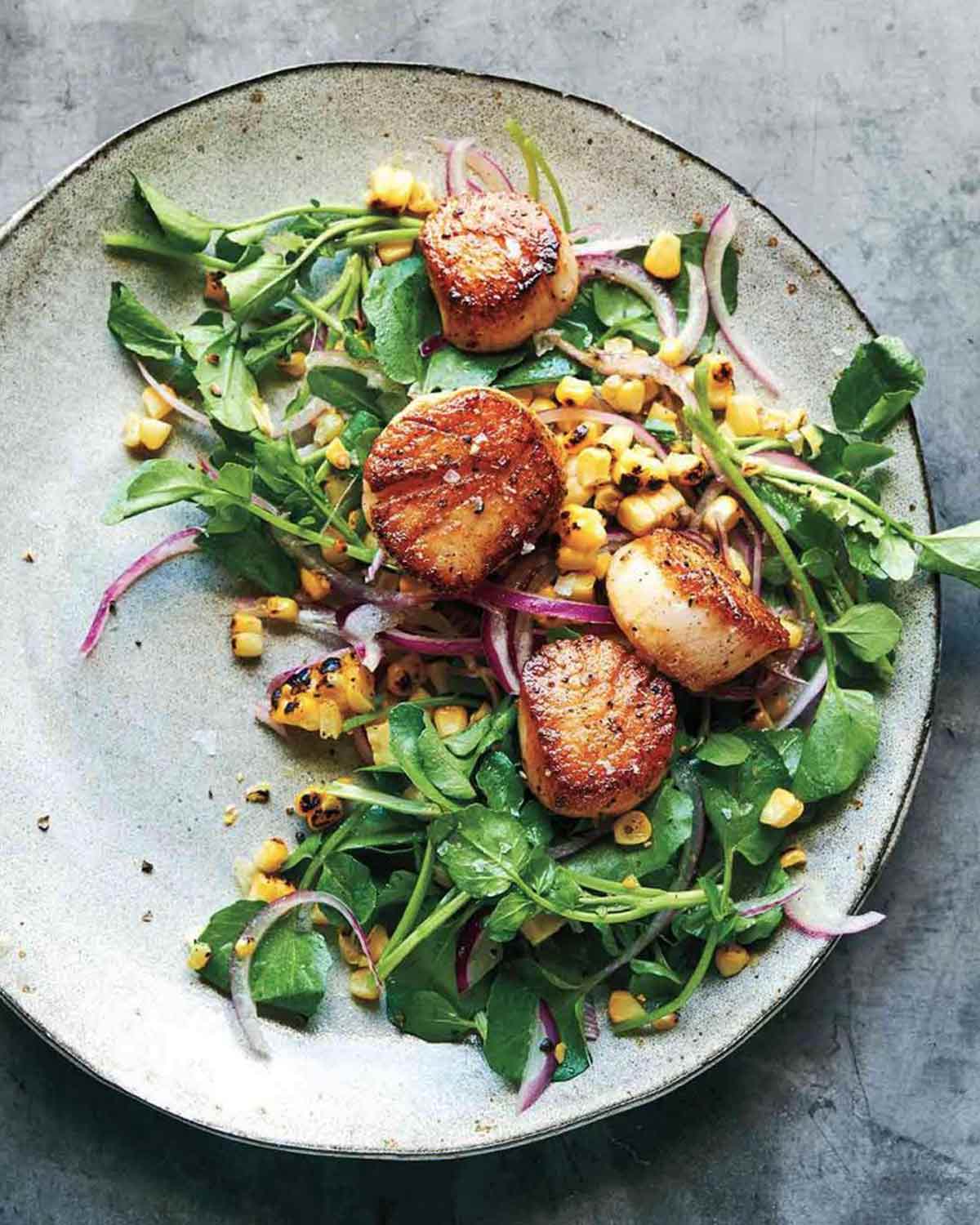




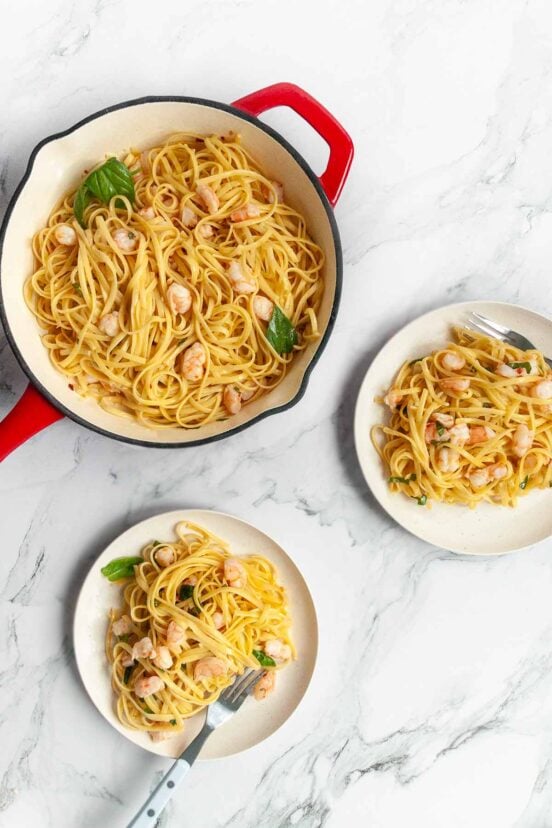
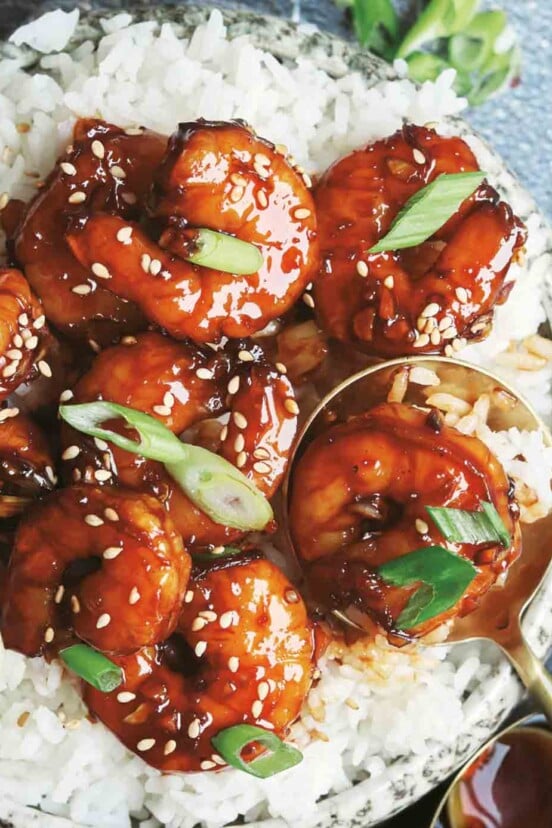
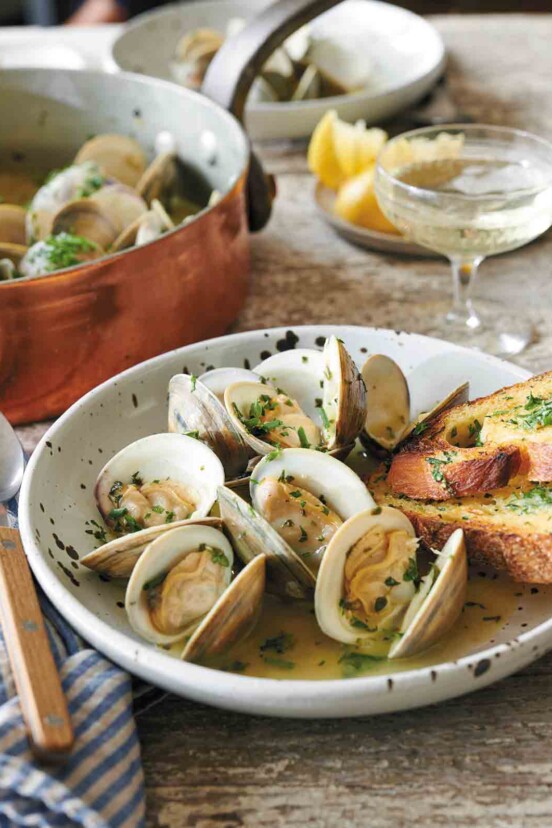









Delish! They were easy to make and tasty too!
Thanks, Heather!
I followed somebody’s advice about the 1/4 cup of white wine, garlic, and butter and it was delicious. Will be making this again.
Wonderful, Britney! I’m so pleased to hear this.
Almost perfect my husband said! Easy recipe. Definitely will use again.
Thanks, Ellisa! So glad it was a hit at your dinner table.